I don't understand bus lanes. Why do poor people have to get to places quicker than I do?
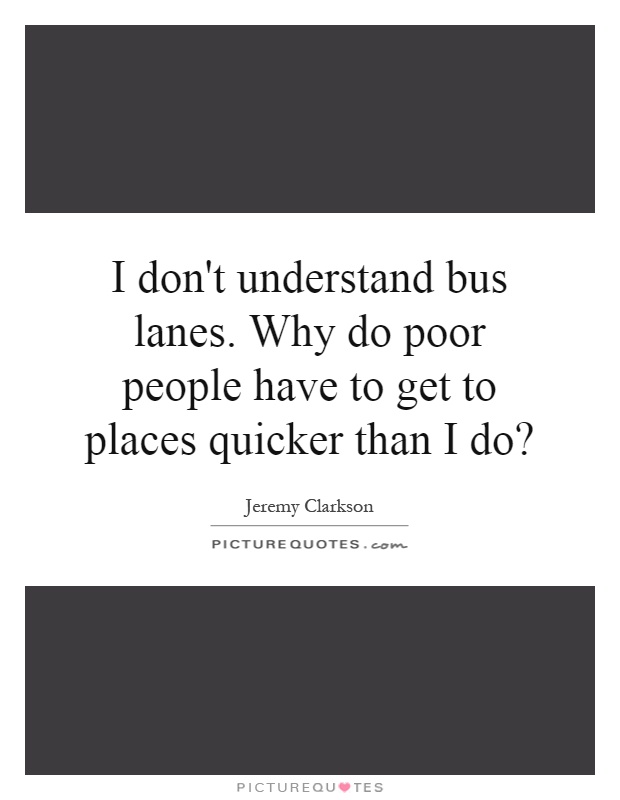
I don't understand bus lanes. Why do poor people have to get to places quicker than I do?
Jeremy Clarkson, the controversial and outspoken television personality known for his brash opinions and unapologetic demeanor, has once again stirred up controversy with his recent comments on bus lanes. In a recent interview, Clarkson expressed his confusion and frustration with the concept of bus lanes, questioning why poor people should be given the privilege of getting to places quicker than he does.Clarkson's comments have sparked outrage and criticism from many who view his remarks as elitist and insensitive. The idea that bus lanes are designed to benefit only poor people is a gross oversimplification of their purpose. Bus lanes are actually intended to improve public transportation efficiency, reduce traffic congestion, and promote sustainable modes of transportation.
By giving buses their own dedicated lanes, they are able to bypass traffic congestion and move more quickly and efficiently through city streets. This benefits not only those who rely on public transportation, but also helps to reduce overall traffic congestion for everyone on the road. In fact, studies have shown that bus lanes can actually improve traffic flow for all vehicles, not just buses.
Furthermore, the notion that poor people should not be allowed to get to places quicker than Clarkson is not only elitist, but also ignores the reality of many people's lives. For many low-income individuals, public transportation is their only means of getting to work, school, or other essential destinations. By providing dedicated bus lanes, cities are helping to ensure that these individuals can get to where they need to go in a timely and efficient manner.
Clarkson's comments highlight a larger issue of classism and privilege that is prevalent in society. His belief that he is somehow entitled to faster travel times than others simply because of his socioeconomic status is not only misguided, but also reflects a lack of empathy and understanding for those who may not have the same resources or opportunities as he does.
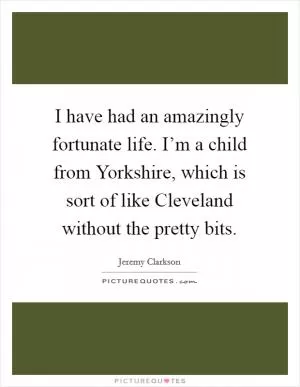
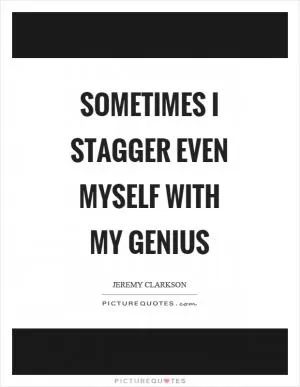

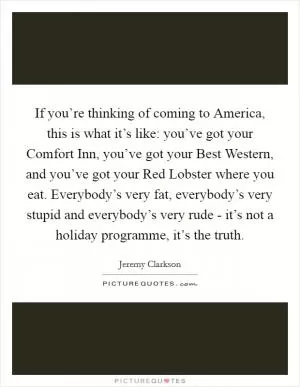
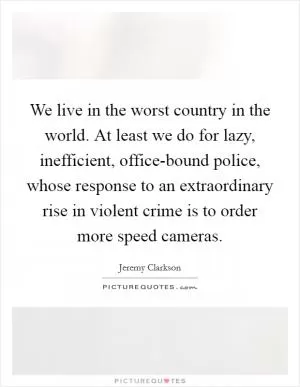







 Friendship Quotes
Friendship Quotes Love Quotes
Love Quotes Life Quotes
Life Quotes Funny Quotes
Funny Quotes Motivational Quotes
Motivational Quotes Inspirational Quotes
Inspirational Quotes